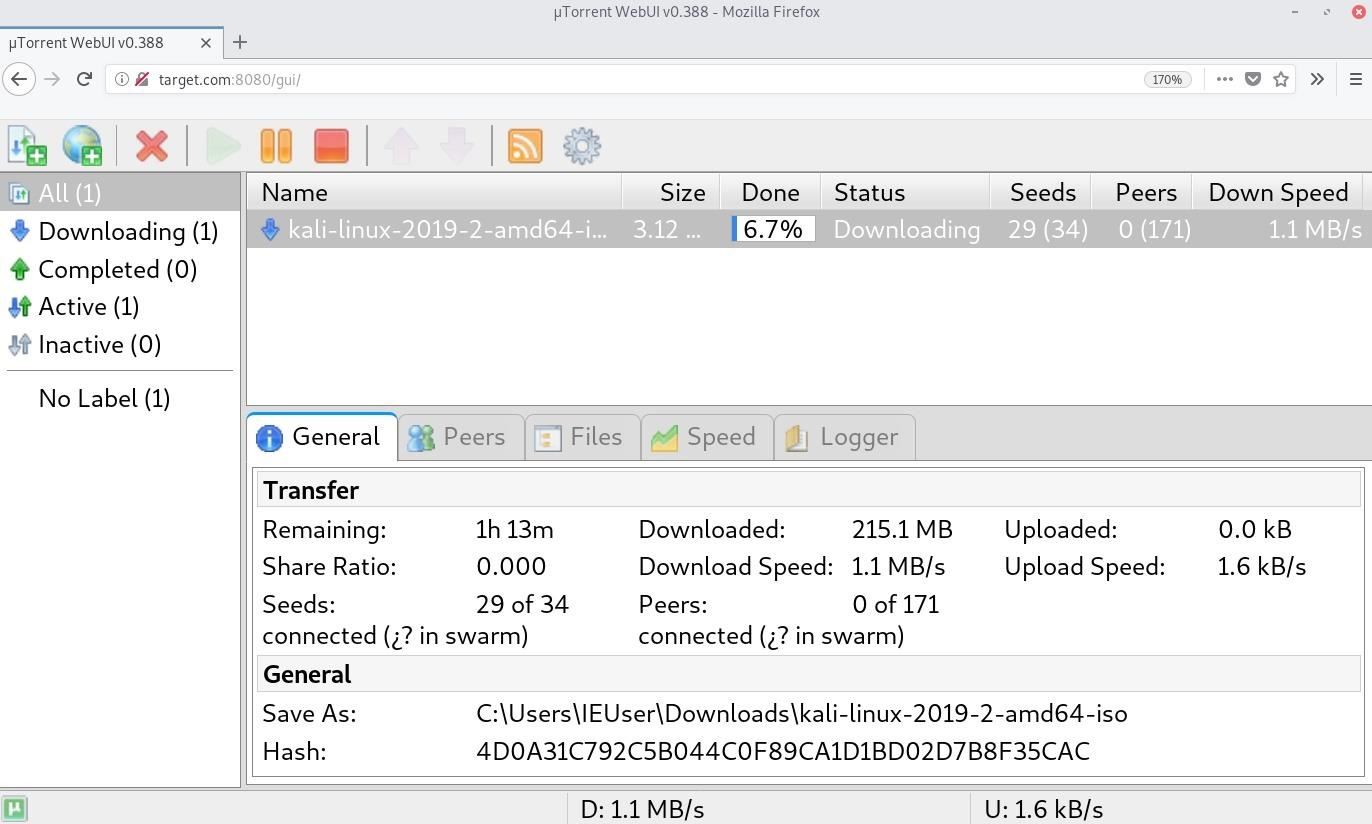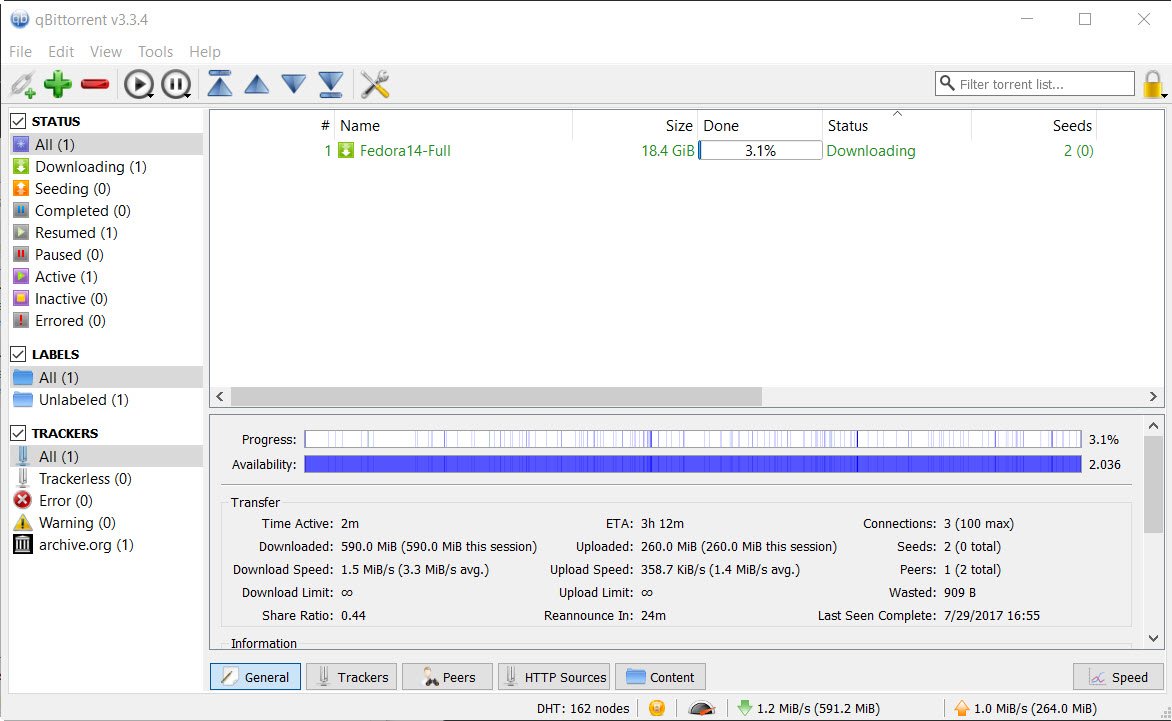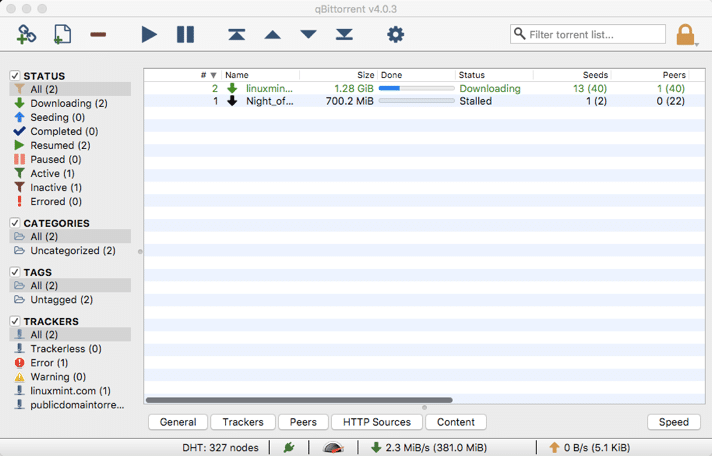A torrent client makes an outbound connection to a seeder with an ephemeral port, then the server associates that connection to your private/internal IP address via connection tracking (conntrack.
A VPN can protect your web traffic from prying eyes, but some won't allow you you to indulge in your BitTorrent habit. These are the best VPNs for BitTorrent, whether you're a seeder or a leecher. The best way to hide your IP address for safe torrenting is to use a trustworthy VPN. Generally speaking, this means a trusted no-log torrent VPN such as NordVPN. A BitTorrent proxy is another way to hide.
Torrenting opens up a world of possibilities for people – unrestricted access to entertainment, information, and software you need to make it big in your line of work.
However, not everyone sees torrenting in a positive light – especially ISPs. So, you need to learn how to hide torrenting from your ISP to enjoy peace of mind.
If you want to learn about that, we’ll cover everything you need to know in this article.
DISCLAIMER: Before we start discussing this topic, we need to make one thing clear – we here at CactusVPN don’t encourage or condone illegal torrenting.
With that said, we are aware that some people can only get the things they need (entertainment, work-related software, school documents, etc.) with torrents.
So we know this can be a sensitive legal issue, but we also understand that some people have no choice but to resort to it
Why Should You Bother Hiding Torrent Traffic from Your ISP?
There are plenty of reasons to do that:
- If you live in a country where torrenting is illegal or a sensitive legal topic, you can end up in serious trouble – like having to pay huge fines or even facing jail time.
- If torrenting goes against your ISP’s ToS, they can terminate your service if they catch you downloading torrents – even if you’re just a “first-time offender.”
- Any seeder or leecher can see your real IP address. It might not seem like much, but that little address can leak a lot of personal info (what city you live in, what your ZIP code is, who your ISP is). We’re not saying something bad will 100% happen, but some cybercriminals can use that info to target your ISP with phishing attacks. So, it’s worth keeping that in mind.
- Copyright trolls might collect your IP address from torrent clients, and forward the personal info it reveals to lawyers and copyright agencies.
- Your ISP might throttle your bandwidth if they think you’re using too much data to download torrents.
Can Your ISP See All Your Torrent Traffic?
Not directly.
While it’s true that your ISP can see a lot of what you do online, they can’t easily see BitTorrent traffic – unless you use an outdated torrent client with no encryption, of course.
That doesn’t mean you’re safe, though.
For one, your ISP can check usage patterns to see if you’re downloading torrents – like multiple TCP connections and simultaneous upload streams. Also, high bandwidth usage can be another dead giveaway.
Moreover, even if you browse HTTPS-encrypted torrent websites, your ISP will still be aware of it. Sure, they won’t see what content you browse, but they’ll know which torrent websites you visit since DNS queries usually don’t use encryption, so they’re in a readable format.
What’s more, if they’re feeling up to it, your ISP can closely analyze your HTTPS traffic to get an idea of what you’re doing. They just have to take a look at the destination, timing, and size of your data packets.
And lastly, if your ISP really wants to, they can just pay torrent monitoring agencies to let them know if an IP address that belongs to them (so, your ISP address) shows up in a Swarm (the total number of peers on a torrent).
So yeah, if torrenting is a legal issue in your country, your ISP might go through all of that to make sure you’re not breaking the law or their ToS.
How to Hide Torrenting from Your ISP the Right Way – Use a VPN
A VPN is an online service that hides your IP address, and also encrypts your Internet traffic.
Simply put, it gives you exactly what you need to hide torrenting from your ISP. Here’s what you need to know:
- When you connect to a VPN server, it replaces your IP address with its own address. So, nobody will be able to see your real address in the torrent client anymore.
- A VPN establishes a secure “tunnel” between your device and the VPN server. Any traffic that goes through it is completely indecipherable to your ISP thanks to the VPN’s encryption.
Safe to say, your ISP will have no idea you’re downloading torrents. At most, they’ll just know you’re using a VPN. And that’s not exactly illegal – well, not in most countries at least.
Does a VPN Hide Torrenting from ISP All the Time?
Normally, it does.
However, if you pick an unreliable VPN service, you’re gonna have problems.

The main thing you need to worry about are DNS leaks – basically, when your DNS queries (the websites you browse) leak outside the VPN tunnel. If that happens, your ISP will know you are using torrent websites.
The best way to stop that from happening is to use a VPN service with built-in DNS leak protection.
You should also use a website like DNSLeakTest.com to make sure your VPN connections are doing well. Feel free to use our VPN test guide to check for other issues too.
Oh, and use the ipMagnet tool as well. With it, you can make sure there are no torrent IP leaks when you use a VPN.
Are There Other Ways to Hide Torrenting Traffic?
Yeah, there are other options you can try, though they are not as efficient as VPNs. Still, you can try them out together with a VPN if you want to enjoy even more privacy.
Some good ideas include a seedbox, Anomos, or a proxy, but we won’t get into them right here since we already have an article discussing those options.
Torrent Client Encryption vs. VPN Encryption
Best Free Ip Hiding Software
Some torrent clients actually come with built-in encryption, and turning it on is pretty simple. It varies from client to client, of course, but you normally just have to head to Tools>Options>BitTorrent, and enable encryption or turn on an option that says you require encrypted peers.
So, should you use torrent encryption instead of a VPN?
Not really. BitTorrent encryption just isn’t as strong as VPN encryption. For comparison, BitTorrent normally uses encryption keys between 60 and 80 bits. That’s significantly weaker than VPN encryption keys that vary between 128 and 256 bits.

Also, some torrent clients don’t even encrypt all your data packets, just their headers. That makes it easier for your ISP to pinpoint torrent traffic.
And according to some claims, there is a way for ISPs to block torrent traffic even if you use torrent encryption. It’s called the Sandvine application, and it can apparently intercept and block BitTorrent traffic.

All in all, torrent encryption just isn’t very effective.
Still, if you really want to be safe, you can just use torrent encryption alongside VPN encryption. But keep in mind you’ll likely get slower speeds since your torrent will be refusing connections to peers who don’t use encryption.
How to Hide Torrenting From Your ISP Like a Pro? Use CactusVPN
If you need a reliable VPN, we’ve got your back. Our service offers military-grade encryption, high-speed servers, versatile protocols, and built-in DNS leak protection.
Also, we provide unlimited bandwidth, and don’t keep any logs. Plus, we offer access to a Kill Switch too, so you never have to worry about your torrent traffic leaking – not even if your VPN connection goes down.
So go ahead and pick a subscription plan. Once you do that, just download our user-friendly apps, and you’re good to go.
Special Deal! Get CactusVPN for $3.16/mo!
And once you do become a CactusVPN customer, we’ll still have your back with a 30-day money-back guarantee.
The Bottom Line
While your ISP can’t outright see BitTorrent traffic, they can still detect it if they want to. And if they do that, they can terminate your service, or – worse – get you in legal trouble.
That’s why you need to learn how to hide torrenting from your ISP.Luckily, the solution is simple – just use a VPN. The service will encrypt your Internet traffic, making it completely unreadable. So, your ISP will have no idea what you’re downloading or browsing.